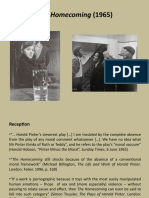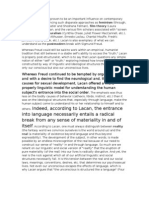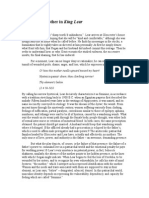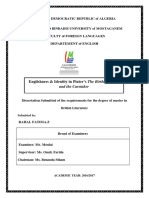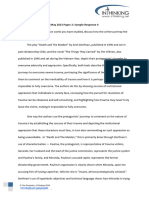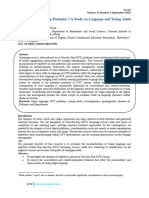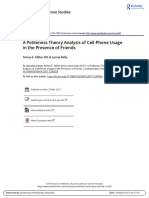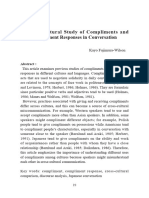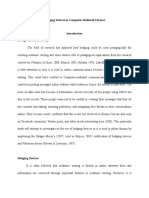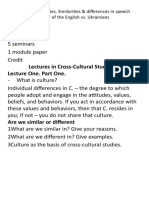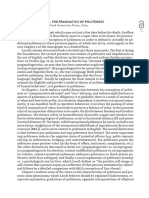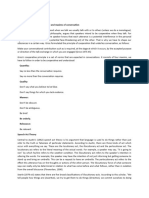0% found this document useful (0 votes)
10 views8 pagesPinter Language 2
This paper presents a pragmatic analysis of manipulative language in Harold Pinter's play The Birthday Party, focusing on how such language leads to power imbalances and identity loss among characters. Utilizing frameworks by Culpeper and Spenser-Oatey, the study examines impoliteness strategies employed by characters to assert dominance and the resulting impact on the weaker character, Stanley. The findings highlight the destructive nature of verbal attacks and the implications for social dynamics within the play.
Uploaded by
ZeventricCopyright
© © All Rights Reserved
We take content rights seriously. If you suspect this is your content, claim it here.
Available Formats
Download as PDF, TXT or read online on Scribd
0% found this document useful (0 votes)
10 views8 pagesPinter Language 2
This paper presents a pragmatic analysis of manipulative language in Harold Pinter's play The Birthday Party, focusing on how such language leads to power imbalances and identity loss among characters. Utilizing frameworks by Culpeper and Spenser-Oatey, the study examines impoliteness strategies employed by characters to assert dominance and the resulting impact on the weaker character, Stanley. The findings highlight the destructive nature of verbal attacks and the implications for social dynamics within the play.
Uploaded by
ZeventricCopyright
© © All Rights Reserved
We take content rights seriously. If you suspect this is your content, claim it here.
Available Formats
Download as PDF, TXT or read online on Scribd
/ 8



